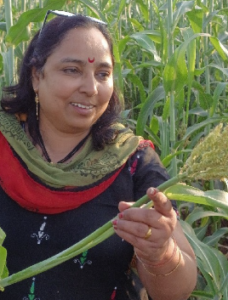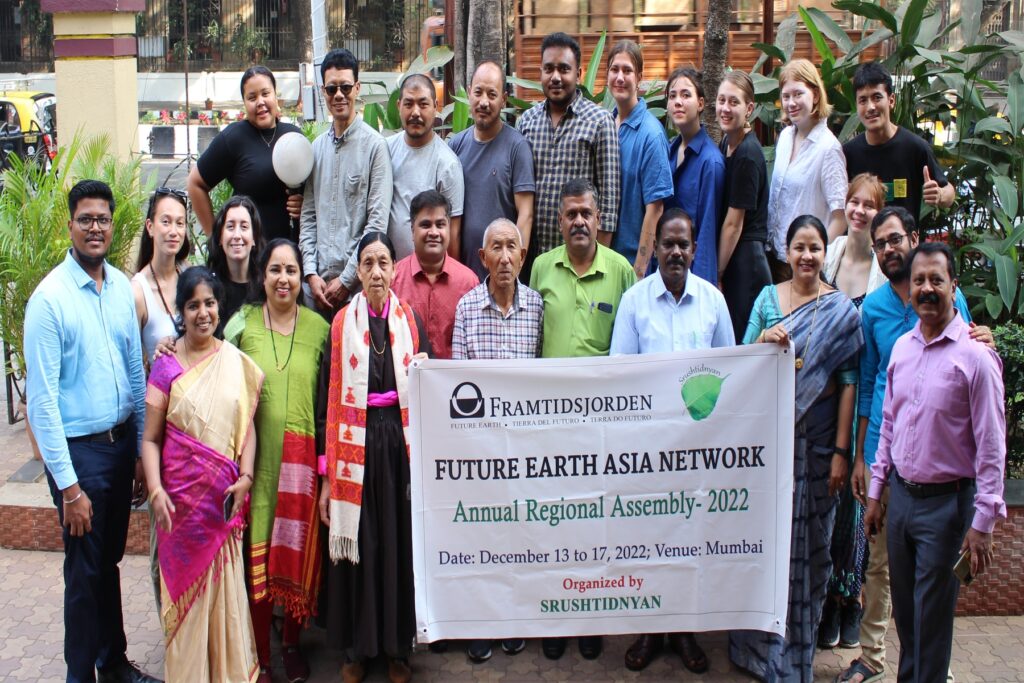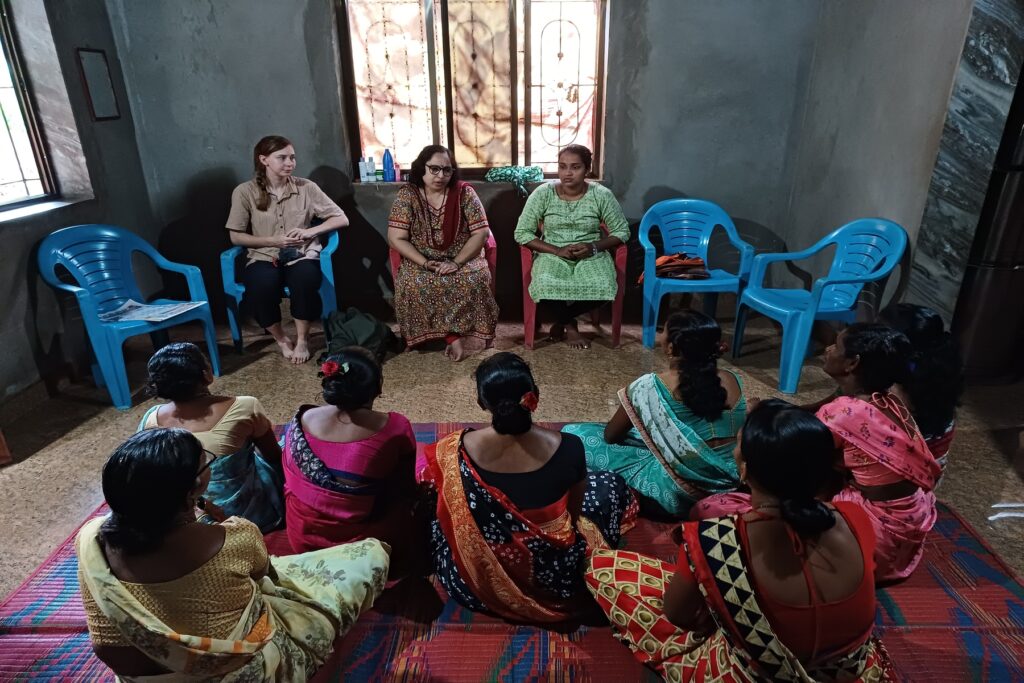
For the last 25 years, Sangeeta Kharat has worked as the assistant director at an organisation called Srushtidnyan, which is working in environmental education. Srushtidnyan has been a member of the Future Earth Asia Network since 2017. Sangeeta holds a master’s in arts and HRD Management from the University of Mumbai.
Can you tell us more about the current project that Future Earth Asia Network centre is conducting?
Future Earth Asia Network works according to three basic principles of ecology, self-reliance, and cooperation and has eleven permanent member organisations (five members in Ladakh, four members in Tamil Nadu, one member in Mumbai and one member in Sri Lanka) and three trial member organisations. Currently, the network is working on a Theory of Change for ecological sustainability and climate-resilient food systems for livelihood security and food sovereignty for an equitable and self-reliant society. The network is conducting awareness campaigns on the importance of sustainable agriculture in schools and local communities in urban areas. In rural areas, the projects are centred around work and research with farmers, self-help groups and knowledge around biodiversity conservation.
Have Future Earth Asia met any challenges in the implementation of activities? If so, how were these challenges addressed or surpassed?
Due to currency fluctuations, there is a shortage of funds for the network. Because of this, some long-term projects can be hard to execute as planned. Swedish government funding policies and Indian government fund compliance keep changing, making it difficult to work while following all the compliances. To avoid corruption and address these challenges, the organisation carefully follows policies and organisational practices to maintain transparency.
How has your involvement in joint collaborations and networks, both regionally and internationally, contributed to the success of your work? Additionally, could you describe the specific challenges small-scale farmers and indigenous communities face amidst crises like climate change, food insecurities, and natural disasters?
Collaboration has helped organisations share their skills, knowledge and resources, leading to greater outcomes. Further, this has helped organisations to connect with others in the sector, providing opportunities for growth and development. The Future Earth Asia Network provides a platform for its members to share their experiences, learnings and skills. Member organisations help each other by sharing their expertise and experiences.
Small-scale farmers are heavily affected by climate change and natural disasters, such as water scarcity and natural calamities. These have resulted in declining biodiversity in local crops and forests, less crop yield and a more complex environment for food production and agriculture, particularly affecting women and youth. This is due to the decrease of nutrition as well as gendered discrimination, making them neglect their health. Young people in rural areas migrate to cities due to limited job opportunities, rooted in the current crises. Our network educates youth on climate- and agriculture-related issues and solutions. Furthermore, we also work with uniting mothers of children in school, teaching them about cultivation and sustainable crops. This has resulted in them coming together at school events, to sell healthy goods, providing the children with valuable knowledge and the mothers an additional income.

